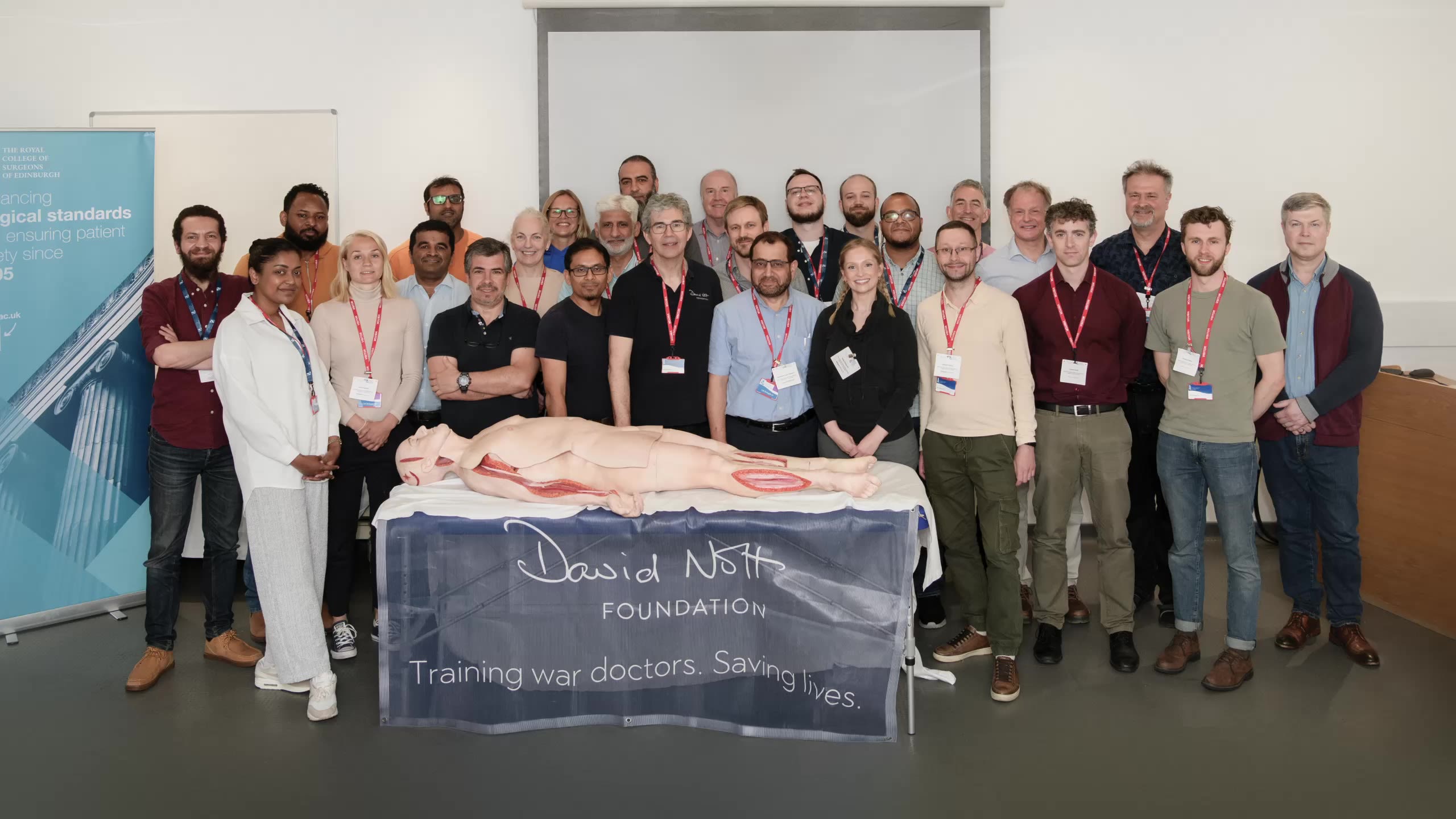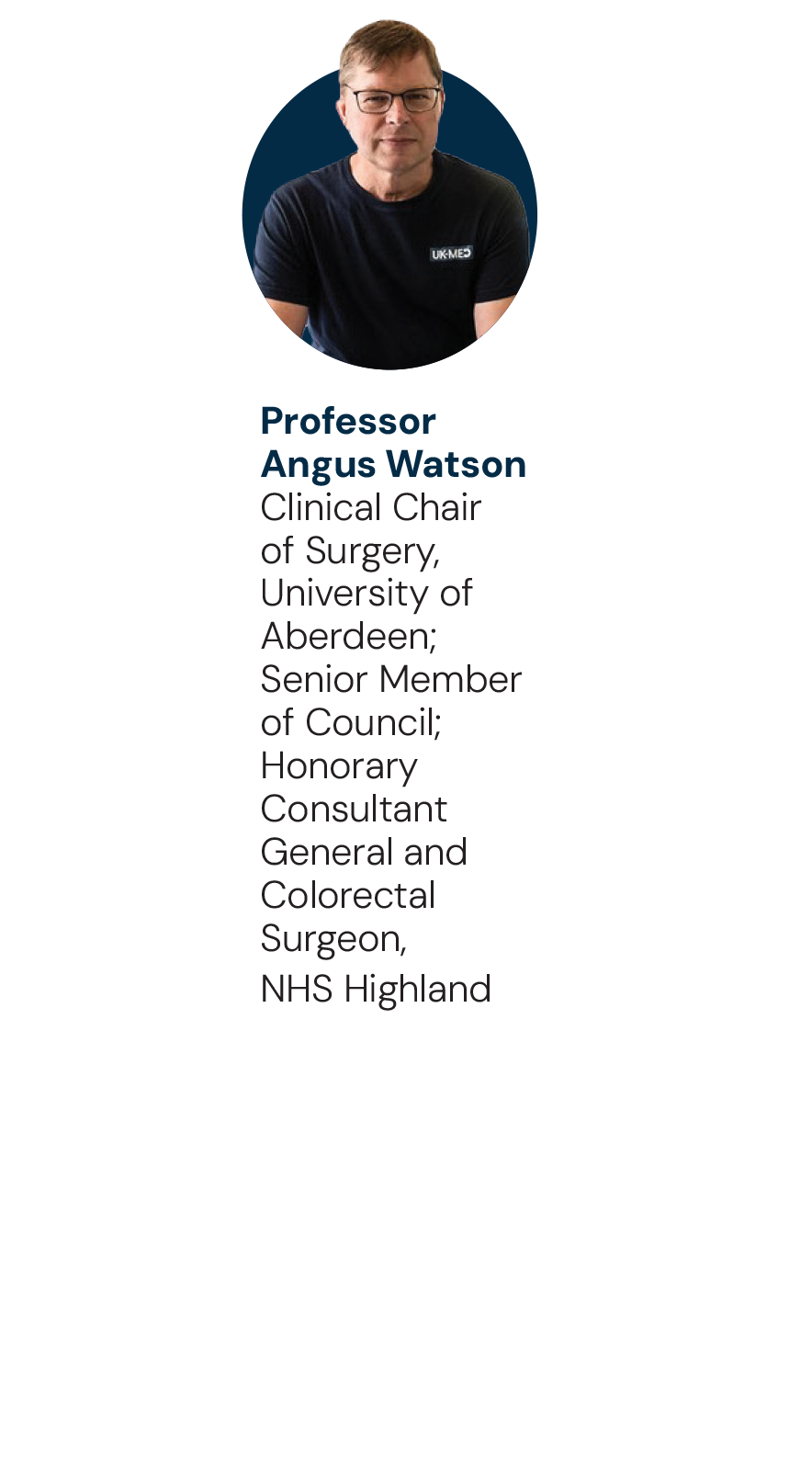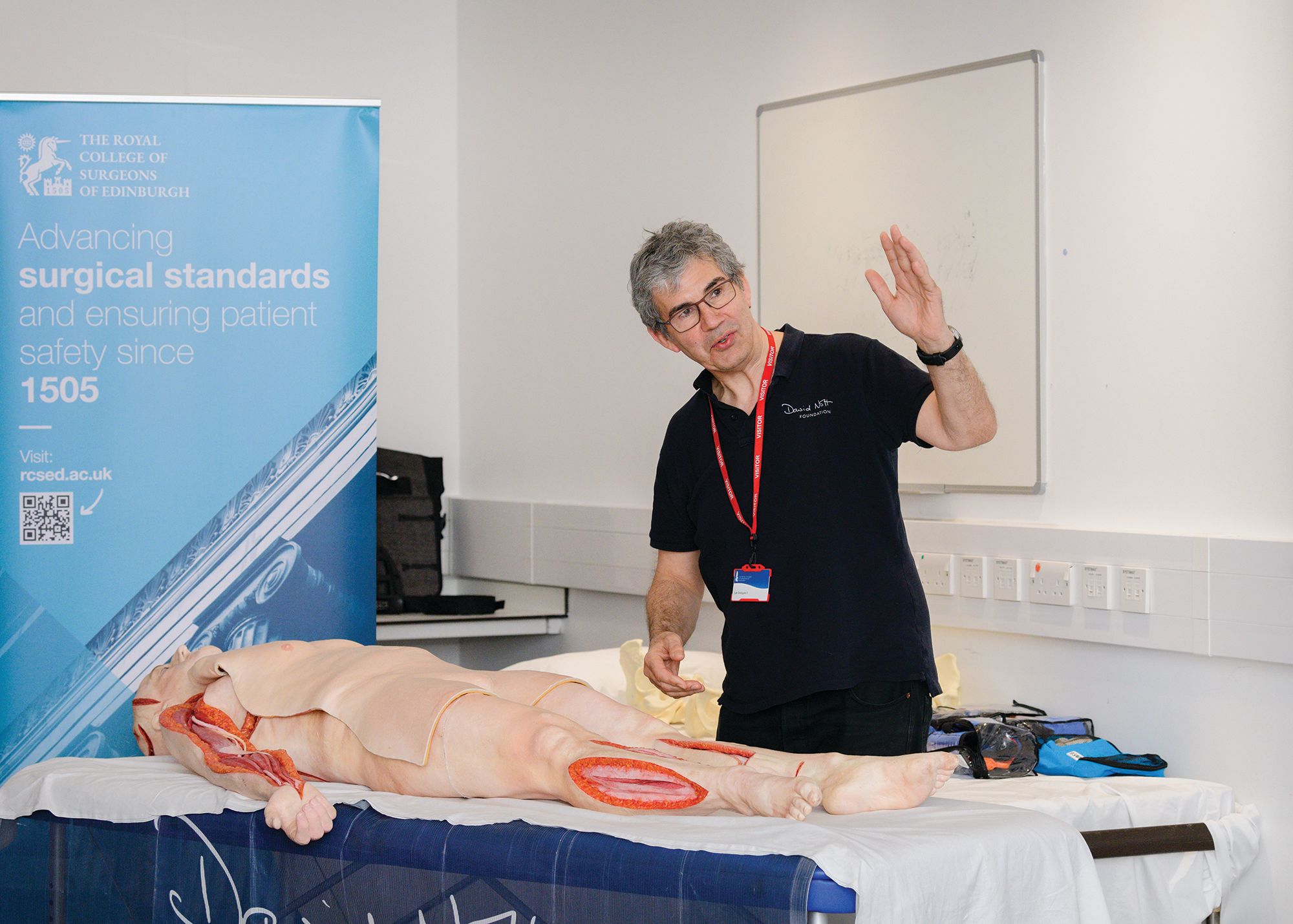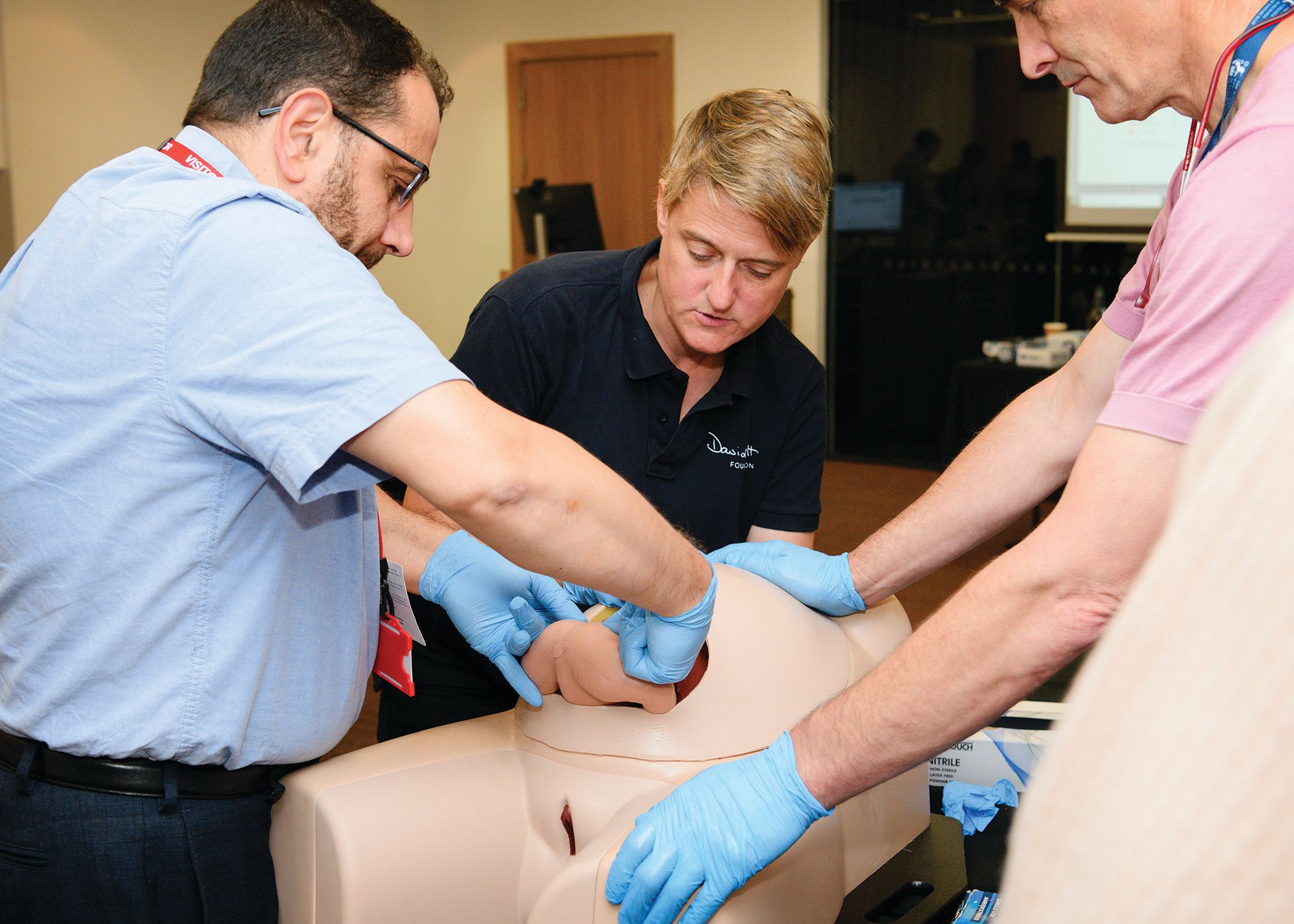The David Nott Foundation Hostile Environment
Surgical Training course UK

The drones were always there. We heard them day and night. As soon as we crossed into Rafah, they were the background soundscape in the Gaza Strip, only interrupted by the horrific sounds of jets, the window-rattling explosions caused by the deep ‘boom, boom, boom’ of naval guns and the rattle of the Apache attack helicopters’ 30mm chain guns. I know, I was there and recorded them all on my phone.
The Faculty of Remote, Rural and Humanitarian Healthcare (FRRHH) is our College’s response to a world in danger, be it from the harms that come from a changing environment or from war. The FRRHH aspires to become the professional home for workers and volunteers in this sector. Collaboration in the delivery of humanitarianism is a key factor for success. One of our most important collaborations is with the David Nott Foundation.
The David Nott Foundation’s Hostile Environment Surgical Training (HEST) course exists to make sure that doctors who work in war zones, disaster areas, and other resource-poor settings can make life-saving decisions safely and with confidence. The course is a high-intensity programme that translates Professor David Nott’s decades of experience into practical and reproducible skills.
HEST’s core philosophy is straightforward: to teach what will save lives in the places where resources and time are scarce. The focus is on decision-making and surgical techniques that can be achieved in environments that do not have advanced imaging, specialist surgical support or intensive care teams.
The course teaches techniques to save lives in places where time and resources are scarce
The course teaches techniques to save lives in places where time and resources are scarce
The course is agile as its format is adjusted to the region in which it is delivered. The HEST-UK programme is run in collaboration with the College in Edinburgh. It runs over five days and is tailored to surgeons who intend to volunteer in zones of conflict and catastrophe. Participants learn to prioritise damage-control surgery over complex reconstructions. This includes managing massive haemorrhage with limited supplies, securing difficult airways and addressing the broad range of injuries seen in conflict, including penetrating trauma, blast injuries, crush syndromes and obstetric emergencies.
Teaching is delivered by a dedicated and experienced faculty of volunteers in the College’s skills centre. Small-group demonstration and practice occurs in the cadaveric lab using HESTON, the Foundation’s state-of-the-art, high-fidelity mannikin. Class sizes are deliberately kept small to maximise hands-on time and so the faculty can give constructive feedback. The course, whilst compact, is comprehensive and includes neurosurgical, head and neck and thoracic trauma techniques in addition to the more familiar areas of the abdomen and pelvis. There is a whole day on plastic surgery, which includes teaching on how to look after burns and perform a wide variety of grafts.
A large proportion of the injuries that I witnessed in both Ukraine and Gaza were burns and blast wounds, so being equipped with the knowledge to look after these patients, when there are no plastic surgeons in the region, is exceptionally valuable.
Vascular access to major blood vessels is taught using a combination of cadaveric dissection and using HESTON and the Foundation’s bespoke prosthetic models. A whole day is dedicated to orthopaedics, which cycles through fracture management, damage control, pelvic trauma and a variety of internal and external fixation techniques. Sadly, there is a high need for amputation in areas of conflict and a session dedicated to these essential techniques is delivered in the dissection room.
A day is devoted to obstetrics and gynaecology
A day is devoted to obstetrics and gynaecology
Even in war, babies keep arriving and ‘normal’ peace-time emergencies, such as appendicitis, occur. Day five of the course is dedicated to obstetrics and gynaecology and covers normal and difficult delivery, perineal trauma and uterine haemorrhage, caesarean section and neonatal resuscitation.
Through HEST, the David Nott Foundation has trained hundreds of surgeons worldwide. Many of these surgeons have been sponsored by the Foundation to come to Edinburgh for the course. Alumni consistently describe a lasting increase in confidence and a practical shift in mindset in how they approach emergency cases in conflict. Training the next generation of HEST trainers is a key joint aim of the David Nott Foundation–RCSEd partnership. This dual approach will ensure the continued growth of HEST in the UK and abroad. The world needs more surgical humanitarians.
HEST-UK is all about giving frontline clinicians the skills that matter most in the first minutes and hours after a trauma. It is a practical and life-saving curriculum, which has been developed from decades of wartime experience. Professor Nott has dedicated his life to innovating, training and delivering humanitarian healthcare and the College is proud of its association with his Foundation.
Read more




